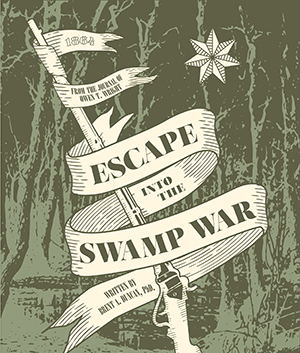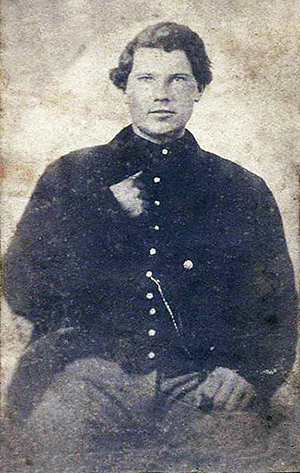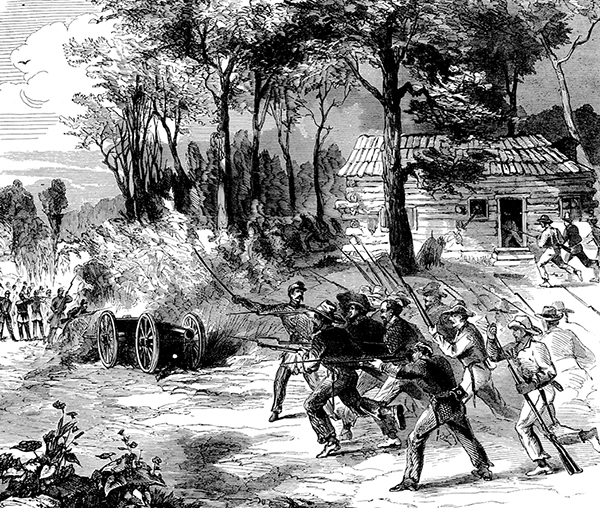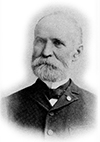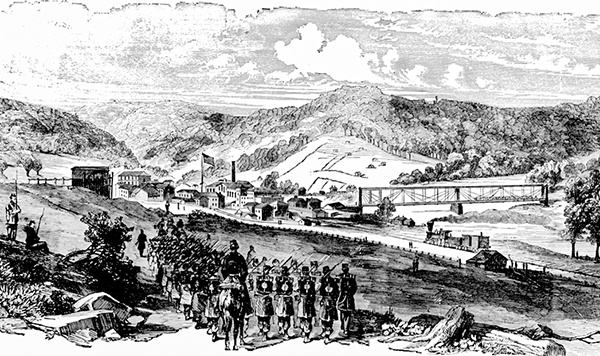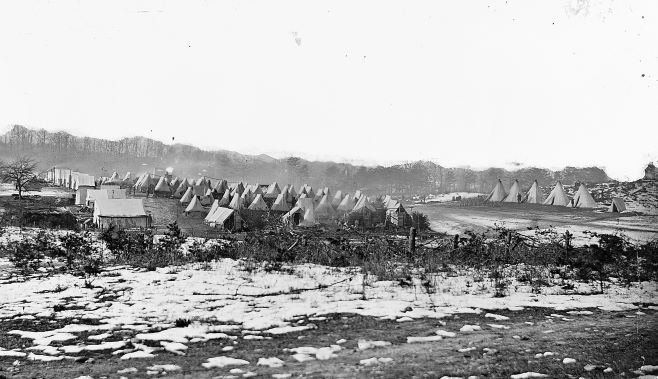History has an answer to Owen's pondering, "our beloved commander G. B. McClellan took his leave of us for Washington for what purpose I cannot tell." Cautiously pursuing a weak inferior enemy as they fled from defeat at Antietam, he had somehow maneuvered his army into being surrounded at Rectortown.
Long tired of McClellan's inept dawdling, Lincoln immediately penned the order to relieve McClellan from duty.
A gifted engineer, McClellan's strength was organizational skill. He had transformed the Army of the Potomac into a strong, powerful, and proud force capable of obliterating its inferior foe. His ability to boost the army's sprit won McClellan the undying devotion of his men, who called him "Little Mac."
McClellan's weaknesses as a military leader overshadowed his strengths as an engineer. A great organizer, he was inept in combat. He had a habit of grossly overestimating the size and power of his enemy. Despite his superior force, he refused to attack. Instead, he moseyed with long, slow defensive maneuvers that usually culminated in defeat by an inferior foe.[1]
McClellan blamed his failures on incompetent politicians and administrators. He said they failed to provide him with enough men and supplies to carry out effective campaigns.[2] Meanwhile, the Confederates trounced his army with far fewer men, inferior arms, and scant supplies. When McClellan complained about insufficient reinforcements and supplies, Lincoln replied: "Are you not over-cautious when you assume that you cannot do what the enemy is constantly doing? Should you not claim to be at least his equal in prowess, and act upon the claim?"[3]
Lincoln was later overheard saying: "Sending reinforcements to McClellan is like shoveling flies across a barn."[3, 4]
In addition to his weaknesses as a military leader, McClellan was a Democrat who was strongly anti-Republican and who had political aspirations of his own. He constantly feuded with government officials, even with those who had first recommended him for his position. Also, he was not shy about showing his hatred for President Lincoln. McClellan came to view himself as a savior of the nation, a great conciliator. Owen's praise for "our Young Napoleon" was how McClellan envisioned himself: an aspiring dictator who would wrestle power from incompetent politicians and bring peace to the land.[4]
After being relieved from command, McClellan dived into politics and ran as the Democratic candidate for President of the United States against Abraham Lincoln.

When McClellan took his leave of the army on November 10, loyal troops nearly mutinied. Thousands of soldiers refused to allow their beloved leader to leave. They unhooked his train car and rolled it away from the train, shouting condemnation to those who had removed Little Mac from duty. But their loyalty to the Union won out, and they came to respect the order of President Lincoln.
In a farewell speech to his officers, McClellan said: "History will do justice to the Army of the Potomac, even if the present generation does not."[5]
McClellan was right, but not in the way he hoped. History has judged the Army of the Potomac as a grand and powerful army that lacked only one thing that could have brought an expeditious end to the war: a capable military leader. That problem would continue. Lincoln struggled to find competent leaders who could match the prowess of Confederate generals like Lee and Jackson.
[1] Encyclopedia Page 456
[2] B&L 3 “Removal of McClellan” page 102-4
[3] Lincoln, speeches and writings.
Day 87.
[5] B&L 3, ibid.
(C) 2020 by Brent Duncan, PhD


